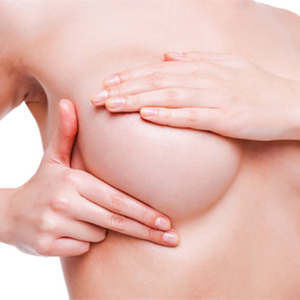Who benefits from revision breast implants?
- Patients who want to change their implant/breast size.
- Patients who have tightening of the scar tissue around the implant (capsular contracture) or your breast implants have shifted in position.
- Patients with previous breast implants that have deflated or an X-ray or MRI suggests your silicone implant has a shell leak.
- Patients whose breast tissue has changed as a result of skin stretching or weight loss/gain.
- Patients with bottoming out condition. This condition describes breast implants that have dropped considerably on the chest, making the breast implants look too low and the nipples look too high.
How is revision breast augmentation surgery performed?
The exact procedure plan will vary depending on the reason for your breast revision. These includes:
Implant removal: If your implants are large and your skin has stretched, Surgeon may recommend a breast lift in addition to implant removal, but implant removal alone may suffice. The original incision created to insert the implant will almost always be the same one used to remove it. The lining around the implant, or “capsule” is often surgically removed at the same time to facilitate rapid healing.
Change in implants size: Surgeon may use the original incision for implant removal and replacement. If you want a bigger implant, Surgeon will surgically widen the "pocket," or space in the breast, surrounding your implant to accommodate a larger implant.
Implant malposition: Sometimes implant pockets are created too far apart or too close together, resulting in poorly positioned breasts. To correct this, using the prior incision, Surgeon will manipulate the scar tissue from the capsule surrounding the implant and reconstruct the pocket in the appropriate position using suturing techniques.
Pre-Operative Care
Our team will evaluate your medical history to check for conditions that may delay the surgery or the healing process. Some of the common conditions are:
• Bleeding tendencies – problems with blood clotting, or lack of clotting
• Scarring problems you have had in the past – like keloid scars and hypertrophic scars
• Hypertension (High blood pressure) – particularly if it is not under control.
• Smoking – this may affect your reaction to the anaesthetic and prolong the healing process. Please stop smoking 4 weeks prior to surgery.
Please avoid aspirin and brufen-containing medication for two weeks prior to surgery to eliminate the chance of post op bleeding. Generally it is best to continue any blood pressure or blood sugar medications. These may safely be taken with a sip of water on the morning of surgery. Women should ensure negative pregnancy test before surgery.
Protect your health prior to surgery. Even a simple cold could cause complications with the anesthesia. If you do develop an illness right before your surgery, let your surgeon know. You may need to postpone your breast augmentation until you feel better. On the day of your procedure, do not wear any skin care products, makeup, deodorant, perfume, nail polish or powder.
Post-Operative Care
After the surgery the surgeon will place waterproof plasters over your incision sites. Keep your incisions/suture line dry. If the plaster should get wet or start to peel off we recommend that you contact the our office to make an appointment to have the wounds cleaned and redressed. You will be able to shower but not swim until your incisions are closed and your sutures have been removed.
Walk around as soon as you are able while recovering from revision breast augmentation surgery. This will help prevent blood clots and can also help relieve swelling. Do not engage in strenuous activities, or exercise, for at least three to four weeks after your surgery. You should plan to avoid activities which require much raising of the arms above the level of the head for 10 days after surgery. With great care, you can drive about 7 days after surgery.
You may be swollen for three or four months after revision breast implant surgery. Drinking water, cutting back on salt and engaging in light exercise can help reduce this swelling (edema). Do not take any over-the- counter or herbal diuretics unless advised to do so by your surgeon. If you experience sudden swelling in the days after your surgery, call our office. You will probably have some bruising after your revision breast surgery, but this will fade. Certain herbal remedies such as arnica or bromelain may help. Ask your surgeon what he recommends. If you still have some discolorations after several months, talk to your surgeon.
You may lose some sensitivity in the nipple or the surrounding skin after revision breast augmentation surgery. This usually subsides within a few weeks. In rare cases, however, loss of sensation can be permanent. As sensation returns to your nipples and breasts, you may experience sharp pains, itchiness, heat, tingling and prickling. These temporary sensations occur because nerve function is returning.
All breast surgery techniques will leave a permanent scar behind, which is meant to be as inconspicuous as possible after healing. Scars will fade gradually but nipple numbness may take up to 12 months before sensation returns.
